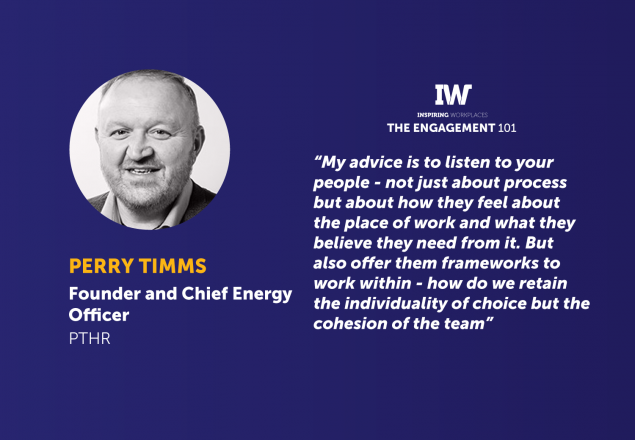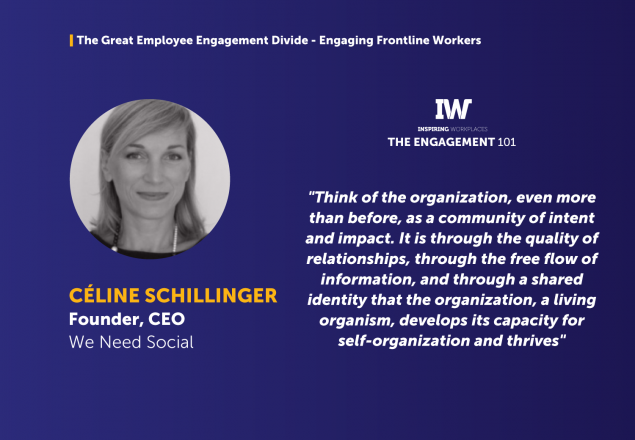
12th December 2023
A Little Feeling With a Big Impact: Leveraging Imposter ‘Syndrome’ as a Superpower”

The article discusses the concept of “imposter syndrome” and suggests that it might be better described as the “imposter phenomenon.” Imposter syndrome is the feeling of inadequacy and fear of being exposed as a fraud despite external success. The term “phenomenon” is used to normalize these feelings and emphasize that it’s a shared experience, not a pathology. The article advocates for open conversations about imposter syndrome and highlights that it’s not necessarily resolved by achieving greater success; instead, it can be a sign of growth. The key is to create a culture of connection and support in agencies to help individuals overcome these feelings and thrive.
From the original article written by Ella Walton and published in The Drum:
Is ‘imposter syndrome’ a misnomer for something we all experience – and ‘imposter phenomenon’ a little fairer? The researchers originally associated with the term think so, as does Ella Walton of M&C Saatchi Sport & Entertainment.
“You mustn’t let a little thing like ‘little’ stop you” sings Roald Dahl’s (or Tim Minchin’s) Matilda.
And she’s right. But ‘little’ is no small feeling. It can have an enormous impact on the way we feel and perform, particularly at work.
In agencies, it’s a feeling which accompanies a well-trodden, well-known experience, more commonly called imposter syndrome.
What is imposter syndrome?
Familiar to many, imposter syndrome is the feeling which grows from the gap between how we perceive ourselves and the external self we present to the world around us. It’s the feeling that we’re about to be found out and exposed as inadequate, and it floods our industry.
Internally, it’s easy to view ourselves under the spotlight of insecurities and mistakes. We size up our ability and right to be in the room according to our weakest traits, playing over and over the greatest hits of our weakest moments.
Yet to the rooms in which we’re seen, the exterior we present is a far more collected and coherent picture than the one we paint inside; to others, your voice is valuable, and you bring something unique to the conversation which no-one else could.
The challenge comes when we listen to the voice of the imposter, rather than the voices of those championing us to be in the room, at the table, to be heard and seen.
So, how do we harness the power of this shared experience and use it to propel us forward, not hold us back? And how, as agencies, can we nurture workplace cultures that support every person to thrive?
‘An experience rather than a pathology’
My biggest learning recently was that imposter syndrome isn’t really a syndrome at all. Instead, it was first introduced as a ‘phenomenon’ intended to normalize the feelings many experience. Psychologists Pauline Clance and Dr Suzanne Imes first coined the term “impostor phenomenon” when they published “The Impostor Phenomenon in High Achieving Women: Dynamics and Therapeutic Intervention” in 1978. In an interview with The New Yorker, Clance herself calls out the importance of the language we use to identify it – the phenomenon is “an experience rather than a pathology”.
It might be a small shift in language, but it transforms the way we think and talk about ‘impostering’. Where a ‘syndrome’ diagnoses, a ‘phenomenon’ empowers; it allows us to harness the feeling as a shared experience used to unite us, rather than labeling a feeling of insecurity and self-doubt. By rethinking the category of imposter ‘syndrome’ and the language we use to talk about it, we normalize the feeling and form common ground upon it.
It follows that the remedy isn’t greater success, but greater connection with one another, and the experiences we share. One of the most powerful rooms I’ve been in was a training on the imposter phenomenon. I couldn’t tell you what I expected to find when I walked into the room, but it wasn’t seats filled with some of the most senior people in the business. This didn’t look like a room of imposters; it looked like a room of leaders and people I hugely admired and looked up to.
Before a single word was spoken, the power of the imposter phenomenon was broken and a common, human connection was formed. If this room of leaders and pioneers experienced a feeling of ‘impostering’, it must be a feeling we can all experience, not a true reflection of our right to be in the room. The first step for agencies to support their people is to open up this conversation in the first place.
Read the full article to find out why ‘impostering’ isn’t fixed by progression.





